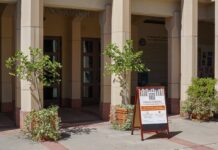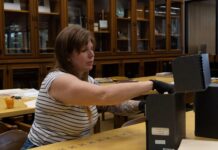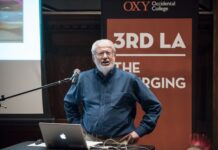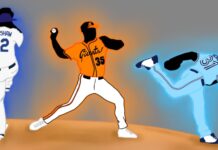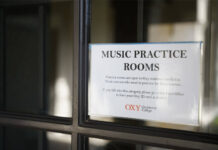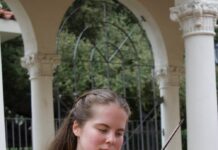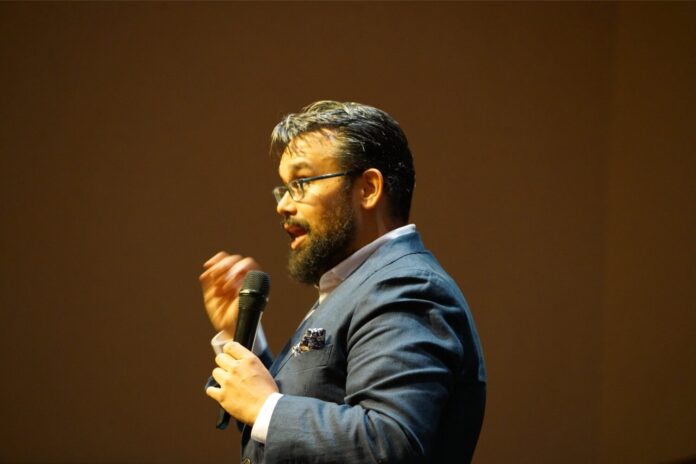
The college’s Core Program invited violinist and social advocate Vijay Gupta to host the talk, “Vijay Gupta: The Medicine of Music,” Sept. 26. Gupta joined the LA Phil at 19 years old, becoming the youngest member of the ensemble. Gupta is also the Founding Artistic Director of Street Symphony. Founded in 2011, Street Symphony is a community of LA musicians who perform and host workshops for folks recovering from addiction, homelessness and incarceration.
Senior Director of Academic Advising Edmond Johnson said the event was mandatory for first years to attend as part of their First-Year Seminar curriculum as a means of creating a common experience.
According to Gupta, his role as a musician is to accompany the audience in creating an understanding of the music. This way, he said, he hopes listeners will not hear just the composer or himself, but their own stories.
“My job [is] to co-create the emotional response with all of you,” said Gupta. “The violin is not the instrument. I am the instrument, and the music is moving through me.”
Gupta said this idea of co-creation taught him how to use music as a form of service. He referenced Dr. Paul Farmer, a medical anthropologist and humanitarian, who advocated the idea of accompaniment in medicine. According to Farmer, a healer must work to understand the forces that shaped their patients and stand with them through their struggles. Gupta said this was a lesson that took him time to truly internalize as a classical musician trained to perform in elite institutions as a soloist.
Through his work at Street Symphony, Gupta and other LA-based musicians host performances and workshops to bring classical music to communities such as LA County jails, prisons and hospitals. According to Gupta, audience members taught him the art of accompaniment: silent inmates in San Bernardino, a man who would always fall asleep in the first row, a woman who jumped up in excitement hearing a Beethoven piece at the Department of Mental Health on Skid Row.
Gupta said he learned the importance of making music for the inmates, rather than at them. Gupta said he was shown music not as a means of creation alone, but as a lifeline.
After attending the talk, Alison Frances Gallardo-Carrizosa (first year) said Gupta’s differentiation between music being performed at an audience versus towards them struck her.
“Hearing music in such a casual setting — performing with each other — [is] feeling the music in a deeper emotional sense because it’s right there in front of you,” said Gallardo-Carrizosa. “It’s something you can really reach out and touch.”
While music can be played alone, Gupta said it is never made in isolation — it is created with an audience. He returned to the idea of accompaniment as a form of healing that comes through belonging.
“Musicians can do something therapists can’t do,” Gupta said. “[They] walk through that emotional door in a way someone like a therapist cannot. In that act of accompaniment, we are also practicing compassion.”
According to Gupta, compassion involves sharing in another’s suffering. Gallardo-Carrizosa said Gupta’s ability to convey such a depth of emotion surprised her, moving her to tears during the talk.
“It’s a lot harder as a performer for you to feel things so deeply that your audience feels it with you,” Gallardo-Carrizosa said. “In that way, he was really inspiring as a lecturer.”
Gupta said an artist has a twofold duty: to improve their understanding of their art and then to offer it to the world. But, he said that duty can be draining.
“My job [is] to constantly fill myself up so when I stand up here I have something to give,” said Gupta.
Gupta said his current sense of purpose took time to develop, originally struggling to decide whether he wanted to pursue music or medicine.
During the Q&A session at the end of the event, Gupta said it was through talking to Dr. Gottfried Sclaug, a former musician and neuroscientist, that he got his answer. According to Gupta, Schlaug said he still missed music, and Gupta took it as a sign that his time as a musician was not over yet.
According to Johnson, Gupta’s unique path serves as a great example for students at Occidental.
“Like a lot of Oxy students, he has really varied areas of interest,” Johnson said. “That crossing boundaries and trying to break out of a very typical focus and say, ‘Ok, how can I take my skills in one area and apply them in another’ is a very Oxy thing.”
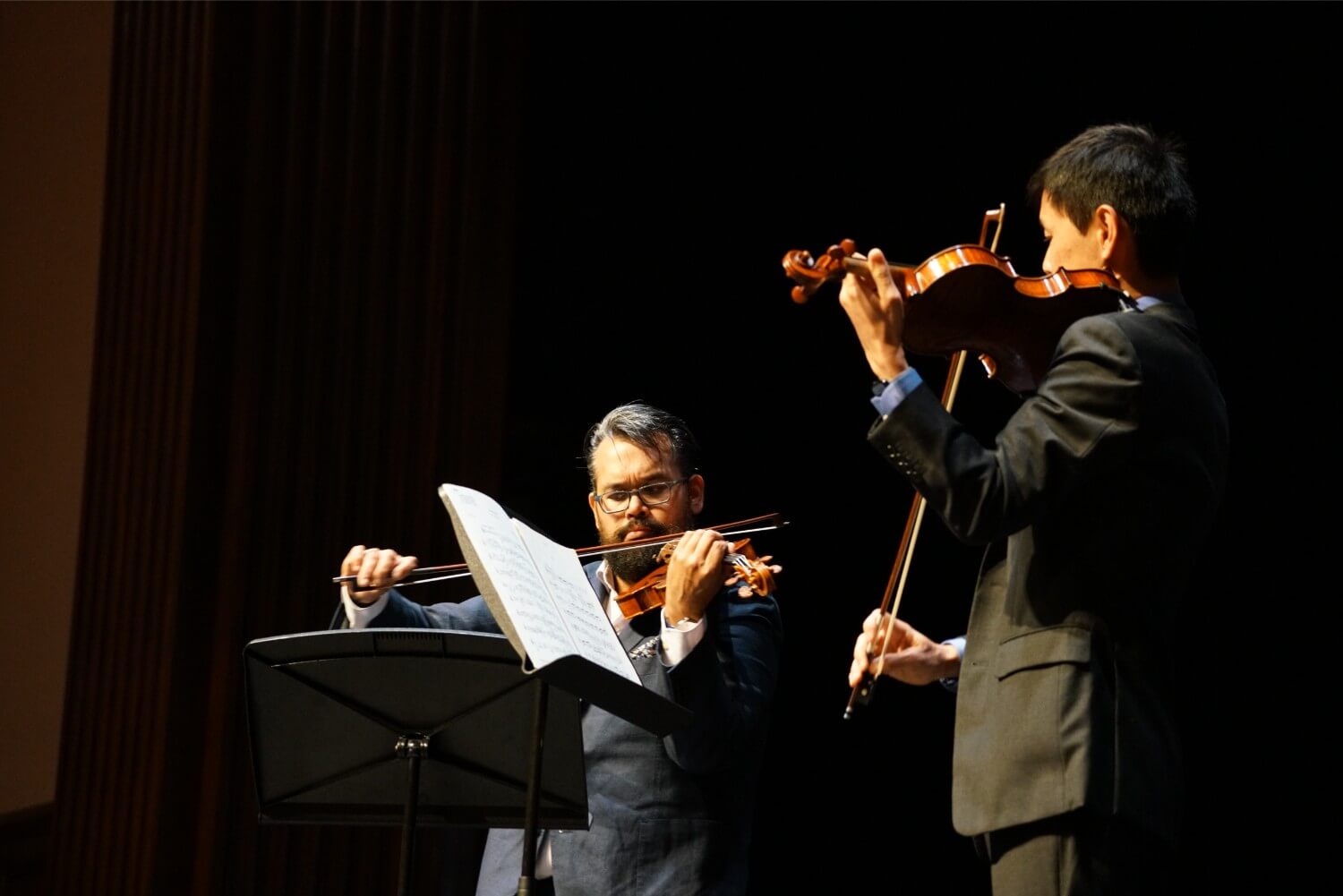
As a potential music major, Gallardo-Carrizosa said Gupta’s story resonated with her deeply. Gallardo-Carrizosa said she also wondered if music was the right career for her, and hearing about Gupta’s success after making the same choice she did was very affirming.
“What if I miss out on music, and I [reach] that point where I can’t go back?” Gallardo-Carrizosa said. “I think that’s something that I couldn’t really live with, and I loved seeing that reflected through him.”
According to Gupta, music is a connecting and healing action. Gupta said he has seen it touch his life in this way, through his performances, his work at Street Symphony and in his own life.
“Every time we look into a person’s eyes, the person we see is ourselves,” Gupta said. “We often think of art as a noun. The lesson I want to leave you with is art as a verb. Art is a verb because it connects us to each other, but it also connects us to those wounded, aching parts of ourselves.”
Contact Naisha John at njohn@oxy.edu
![]()





